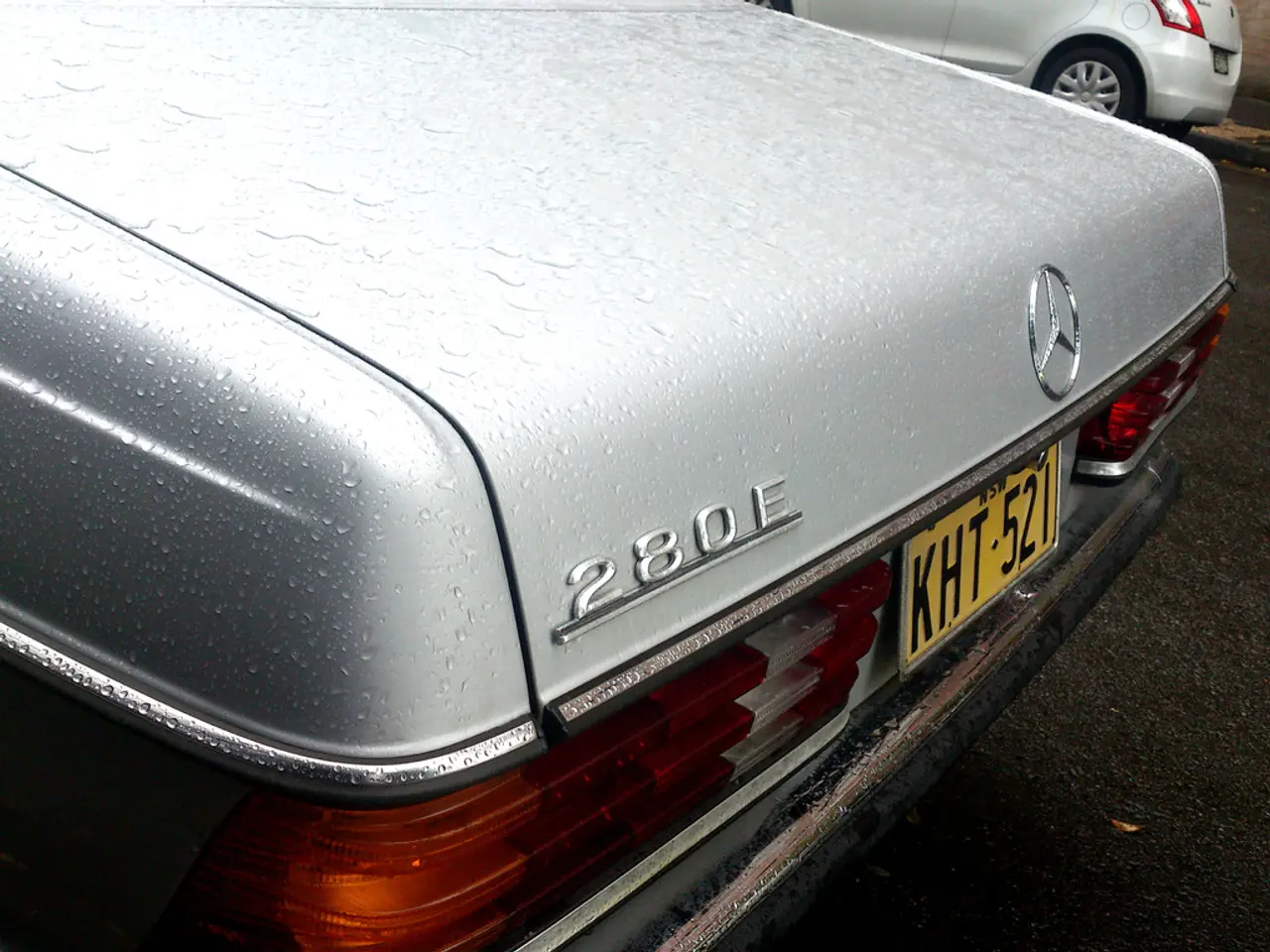Mercedes-Benz Temporarily Halts Production of EQ SUVs and Sedans for the U.S. Market
Mercedes-Benz has announced a temporary halt in production and new orders for its EQ electric lineup, effective from September 1, 2025 [1][2][3]. This decision comes as the luxury car manufacturer grapples with slowing sales and changing market conditions.
The EQ models, including sedans and SUVs, have faced difficulty in finding a strong footing in the U.S. market, with their high prices and limited appeal compared to other electric vehicles [3][4]. Another significant factor is the impending expiration of federal EV tax credits by the end of September 2025. These incentives have historically played a crucial role in consumer purchasing decisions, but the EQE and EQS models, due to their high prices and the requirement for domestic production in the case of sedans, did not qualify for these credits [2][3].
In an effort to boost sales, Mercedes-Benz has recently slashed prices on select EQ models by up to $15,300 [4]. This price adjustment indicates a strategy to make the vehicles more competitive before halting production.
Despite the production pause, Mercedes-Benz will continue to produce EQ variants for export, suggesting that the decision is specifically related to the U.S. market conditions rather than a global halt [1][2]. The company's flexible production system allows it to adapt to shifts in market demand by maintaining production capabilities for other models and global markets [1].
The intervening months may define whether Mercedes' strategy for its next-stage electric models will be bold but blurry or decisive and visionary. The company's focus is shifting towards models built on the upcoming Modular Architecture (MMA), which could signal a return to more familiar forms, such as sedans and SUVs, eschewing the standout aesthetic of early EQs [5].
This move by Mercedes-Benz, with its complex sales chains, presents a monumental balancing act. Unlike Tesla, Mercedes carries a more intricate sales structure, making the clear-the-deck markdowns, paused shipments, and new architecture a significant challenge to manage [6].
Customers weighing a high-end EV purchase may accelerate decisions or wait for the federal credits to return under a new administration. The electric version of the CLA sedan is expected to launch in the U.S. later in 2025, followed by an electric GLC at the September's Munich IAA auto show [7].
Mercedes aims for 50 percent of sales to be electrified by 2030, a target that has been pushed out five years from earlier forecasts [8]. The production halt on Mercedes-Benz EQ electric lineup for U.S. dealerships might be a temporary pullback before a more cautious recovery, according to a TruthAboutCars analysis [8].
References: 1. Mercedes-Benz halts production of EQ electric lineup for U.S. dealerships 2. Mercedes-Benz halts production of EQ lineup for U.S. dealerships amid slowing sales 3. Mercedes-Benz halts production of EQ lineup for U.S. dealerships due to slow sales and expiring tax credits 4. Mercedes-Benz cuts prices on select EQ models as production halts approach 5. Mercedes-Benz pivots to MMA-based vehicles for next-stage electric models 6. Mercedes-Benz's complex sales chains make its electric vehicle strategy a balancing act 7. Mercedes-Benz to launch electric CLA sedan and electric GLC at Munich IAA auto show 8. Analysis: Mercedes-Benz's production halt on EQ electric lineup may be temporary
The production halt on Mercedes-Benz's EQ electric lineup may lead to a challenging financial situation for the company, given the high production costs and potential loss of sales in the automotive industry. To mitigate this, Mercedes-Benz is looking towards the technological advancements offered by the upcoming Modular Architecture (MMA), hoping it will revitalize their sales in the U.S. market. Meanwhile, with the expiration of federal EV tax credits, the transportation sector is undergoing a significant transformation, affecting various industry sectors that rely on consumer spending.




